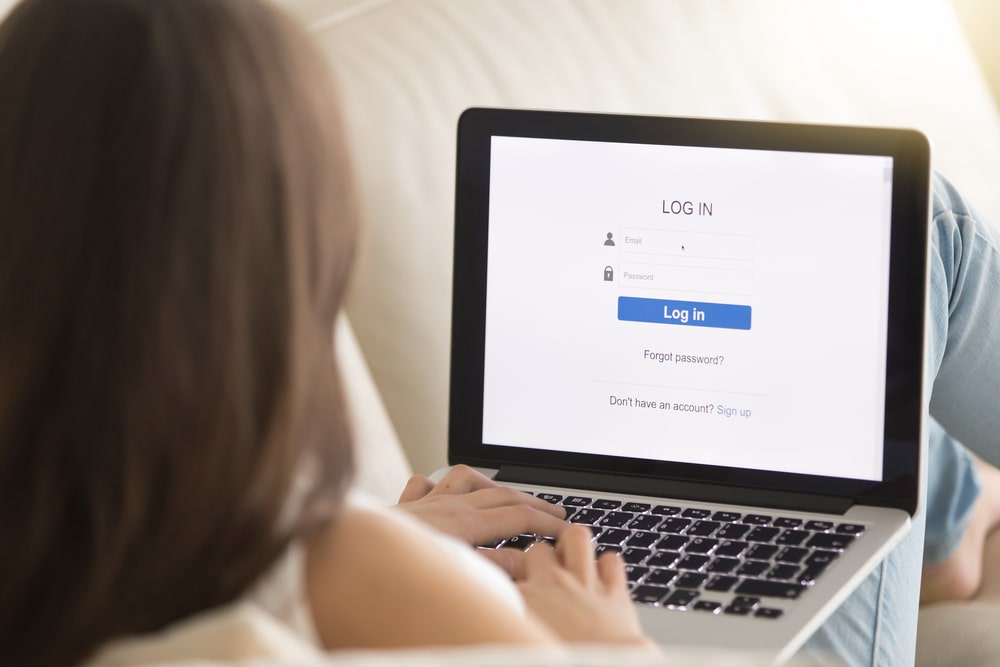There’s no denying that the internet is here to stay. Twenty-five years ago, the internet was just a baby, but now, it’s a huge part of people’s lives. In fact, according to the Pew Research Center, approximately 81% of Americans go online daily. That’s huge! We now do our banking, our shopping, and most of our research online, which means that we all have a lot of online accounts to keep track of.

With so many accounts, what would happen to them if something were to happen to you? Have you considered the importance of taking time to prepare your digital estate plan in addition to writing a will, putting advance care directives in place, or planning ahead for funeral wishes?
First, What Is a Digital Estate?
Getting your affairs in order is an important task to accomplish, and your digital estate is just one piece of the puzzle. Just so you have a clear definition of what your digital assets are, they include:
- Personal email accounts
- Online bank and brokerage accounts (including credit cards, retirement plans, loans, insurance, etc.)
- Social media accounts (Facebook, Twitter, Instagram, LinkedIn, etc.)
- Websites you may own (WordPress, Tumblr, Blogger, etc.)
- Online retail accounts (eBay, Amazon, iTunes, etc.)
- Photo- or video-sharing sites like YouTube or Flickr
- Music sites (Spotify, Pandora, etc.)
- Subscription sites (Netflix, Hulu, Amazon Prime, etc.)
- PayPal, Venmo, CashApp, or other online payment accounts
- Utility bills you may pay online
- And a multitude of other things (frequent flyer accounts, fitness app accounts, etc.)
After looking at the list, how many digital accounts do you think you have? Do you have a plan in place to ensure that your data is protected and taken care of after your passing?
6 Simple Tips to Successful Digital Estate Planning
Planning for your digital estate may seem complicated and a little overwhelming, but with time and a few tips, you can mark this necessary task off your list. Let’s get started.
Keep Track of Your Online Accounts
According to a recent report on digital estate planning, the average internet user has around 90 different accounts. With that many accounts, it just makes sense to keep track of the profiles you have out there, whether it’s social media profiles, email addresses, online banking, credit cards companies, or simply an app you use for rewards at a local restaurant. Write down or use a password protector (like LastPass or Sticky Password) to keep track of your usernames/passwords and make sure that a loved one or emergency contact knows where to find them if the need arises.
Decide What Should Be Done with Each Account
You will also need to decide what should be done with each individual account. This may mean requesting that some accounts be deleted entirely, while for others, it may mean turning an account into a memorial page. Each business or social media platform is different so you may need to do a little research as you make your plans.
For example, Facebook and Instagram can either delete an account completely or “memorialize” it, meaning that any friends can still view the profile and post memorial messages (the account is secured so no one can sign in). Twitter and LinkedIn will work with family members to delete an account, but they won’t give anyone access to the account.
Determine What Should Be Done with Your Digital Content
It’s also important to think about what should be done with any digital content. Should your Flickr photos be sent to family members? If you have unused iTunes credits, do you want to give them to someone? Are there videos you’ve uploaded to YouTube that you’d like removed? If you have a blog, do you want the blog deleted but the content saved somehow? All of these are great questions to ask about any digital content you may possess.
Make Sure Your Emergency Contacts Know How to Access Your Information
You should select a person to serve as your digital executor. This person may be the same person you choose to serve as the executor of your will or one of your emergency contacts. The most important thing is to decide who will take care of your digital assets should something happen to you. If you would like your digital executor to be a different person than the executor of your will, you can include roles in your will so that everyone is clear about who should do what. The clearer you can make things, the easier it will be for everyone left behind to manage your estate the way you want.
Talk to an Estate Planning Attorney
If you are concerned about making sure that you’ve crossed every T and dotted every I, then consider talking to an estate planning attorney. They will be able to help you through the process of planning for your physical estate as well as your digital estate. You can discuss adding any language that may be needed to grant authority to your executor regarding your digital assets. Also, if you’ve already put together a will or other legal documentation but forgot about including digital assets, you might consider going back to update your documentation so that it’s the most current.
Update, Update, Update
We can all agree that things change almost constantly. Because of this fact, it’s important to always update your information. If you create a new account, add it to the list you’re keeping. If you delete one, take it off. Take time to review privacy policies (even if you only review the ones for your most-used accounts). While this whole planning process may take some time, it will be worth it in the end. Both you and your family will have the peace of mind that comes with knowing that everything – including your digital assets – have been considered and taken care of.








